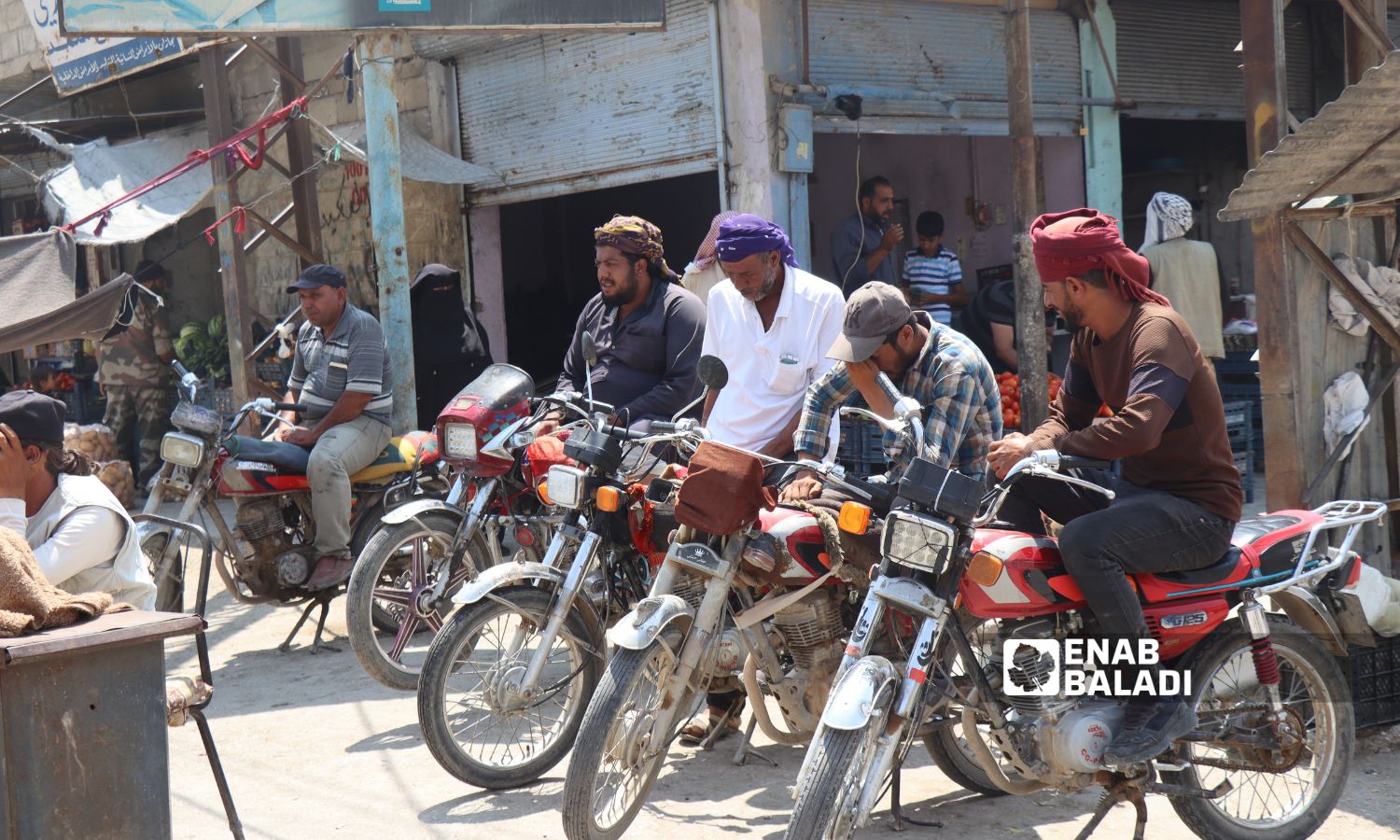



Ras al-Ain – Hussein Shaabo
Residents of Ras al-Ain suffer from a lack of job opportunities, as the northeastern region adjacent to the Turkish border depends mainly on agriculture, amid the weak activity of organizations and the inability of the local authorities to provide opportunities for the unemployed in the region.
The limited space and the siege imposed by the US-backed Syrian Democratic Forces (SDF) on the region is an additional factor affecting the lack of opportunities, investments, and economic diversification.
Ras al-Ain depends mainly on one sector, which is agriculture, which narrows the fields of work and limits the availability of various jobs for the population. The poor infrastructure and services, along with the limited space, affected the region’s ability to attract investments, and all of the above contributed to the weak purchasing power.
Muhammad Riyad, 32, a civil engineer based in Ras al-Ain, told Enab Baladi that for more than two years, he has been searching for a job in the non-agricultural sector, but to no avail.
The main reason for this problem is the lack of employers for engineers in the region, according to Riyad.
Regarding the economic situation in Ras al-Ain, Riyad said that the local authorities are unable to employ all the qualified engineers available in the region, especially with the absence of any investment related to the field in the region, which increases the difficulty of providing job opportunities and economic development in it.
He added that he owns a piece of land that he inherited from his father and decided to offer it for sale after he decided to emigrate outside the war-cracked country.
Mustafa al-Ahmad, 37, is also a civil engineer who has been searching for more than three years for a job befitting his level of education, but to no avail, he said.
He added that the local authorities responsible for managing the region, such as the local council, are unable to absorb graduates and professionals at the present time.
Al-Ahmad is now working on his father’s agricultural land to provide for himself and his family, he told Enab Baladi.
Ahmad al-Marwan, a graduate of the Faculty of Law, has yet to find a job opportunity in his field of specialization, which forced him to work in agriculture, he told Enab Baladi.
In turn, Iyad al-Tokan used to work in construction with about 15 people, according to what he told Enab Baladi. However, for more than a year, he has been unable to engage in construction work in Ras al-Ain due to the lack of projects.
Turkey administers the cities of Ras al-Ain and Tal Abyad in northern Syria, and the service institutions in them are managed through the center of the Turkish state of Urfa. The local council in the city supervises the implementation of service projects that are considered modest compared to those implemented in the northern Aleppo governorate.
Ras al-Ayn and Tal Abyad are located along the Turkish border and are controlled by the Turkish-backed Syrian National Army (SNA) while the battle fronts with the SDF surround them, and the Turkish border is its only outlet to the outside.
There is no university in Ras al-Ain, as the educational chain ends when the student passes the secondary education stage, especially since access to universities in opposition-held areas is almost impossible for the residents of the region since crossing to Turkey and from there to northern Aleppo is not available for civilians.
The official spokesman for the local council in Ras al-Ain, Ziyad Malki, told Enab Baladi that the council is working “with great efforts” to find solutions to the problem of unemployment by establishing investment projects in the area, such as the dairy and cheese project.
He added that the council has secured more than 1,200 job vacancies for teachers in Ras al-Ain and about 400 employees in the local council and its departments, in addition to projects within the council’s future plans, such as cultivating 200 dunams of land and employing agricultural engineers and individuals to supervise it, according to him.
Malki explained that the main reason behind this problem is due to the region’s complete dependence on agriculture for a long time; in addition to that, the SDF imposes a siege on the city and its surroundings, which affects the movement of trade and economic activity in the region.
He pointed out the need for humanitarian organizations to enter Ras al-Ain to contribute to creating more job opportunities for young people to improve the economic situation there.
The council seeks to find “effective” solutions that contribute to reducing youth migration and providing local job opportunities to achieve sustainable development, according to Malki.
if you think the article contain wrong information or you have additional details Send Correction